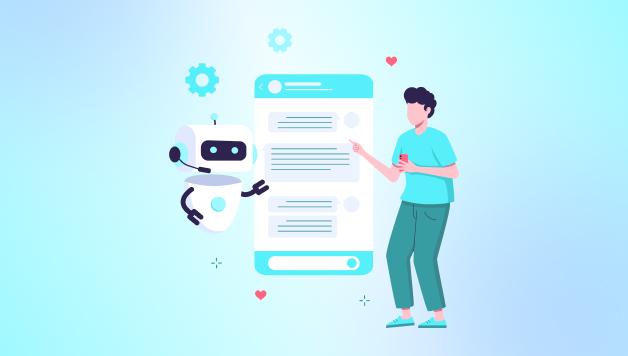In today’s fast-paced digital world, AI in advertising is transforming the way brands connect with consumers. From crafting compelling copy to delivering message AI at scale, artificial intelligence is pushing the boundaries of marketing creativity and efficiency. Text generators powered by advanced algorithms are now central to modern advertising strategies, allowing businesses to communicate effectively, tailor experiences, and optimize performance like never before.
The Rise of AI Text Generators in Marketing
AI text generators utilize natural language processing (NLP) to analyze user data and generate human-like content. These tools are redefining how marketers approach content creation by:
-
Automating ad copywriting
-
Personalizing messages at scale
-
Reducing turnaround time for campaigns
-
Enhancing creative testing capabilities
Such features make AI in advertising more agile, responsive, and aligned with customer expectations.
Why AI in Advertising Matters Now More Than Ever
The digital ecosystem is saturated with content. Standing out requires messaging that is not only persuasive but also hyper-relevant. Here’s where AI comes in:
-
Speed & Scale: AI can generate thousands of variations of ad copy in minutes.
-
Data-Driven Insights: Machine learning analyzes user behavior, allowing ads to evolve based on performance metrics.
-
Cost Efficiency: Reduced reliance on human copywriters lowers long-term campaign costs.
By leveraging AI for texting, brands are now able to keep conversations going with their audiences across platforms like SMS, email, and social media, improving engagement and conversion.
The Power of Personalized Ads
One of the standout benefits of AI-generated text is its ability to fuel personalized ads. These ads resonate more with users because they reflect their interests, demographics, and browsing behavior. AI systems analyze large datasets to tailor content, such as:
When consumers receive relevant messages, they’re more likely to take action, boosting ROI for advertisers.
AI: Delivering Impactful Communication
AI goes beyond simple automation. It uses conversational models to understand context, tone, and audience intent. This leads to more natural, engaging communication in real time. Businesses can now:
-
Respond to customer queries instantly
-
Guide users through sales funnels
-
Offer support with minimal human intervention
The use of AI is proving to be a game-changer in customer experience and retention.
Real-World Applications of AI in Advertising
AI text generation is already being used by major brands and digital agencies. Some real-world use cases include:
-
Social Media Ads: AI generates high-performing headlines and captions based on engagement data.
-
Google Ads: Tools like Smart Bidding pair with AI text to match the right message with the right user.
-
E-commerce Stores: AI writes product descriptions that improve SEO and increase sales.
This level of automation empowers marketing teams to focus on strategy and creativity rather than repetitive writing tasks.
Future Outlook: Generative AI Integration Services
With the demand for scalable, personalized communication growing rapidly, businesses are investing in generative AI integration services. These services streamline the deployment of AI tools into existing platforms, making it easier for companies to scale their advertising operations without losing the human touch.
Expect more AI-driven features to emerge, such as:
-
Emotion detection in text
-
Multilingual copy generation
-
Sentiment-based targeting
Such innovations promise to further enhance AI in advertising, making it an indispensable part of the marketing toolkit.
Challenges and Ethical Considerations
While the benefits are clear, the adoption of AI in digital advertising does raise questions:
-
Content Authenticity: Can users distinguish between human and AI-written content?
-
Bias and Fairness: How do we ensure AI-generated messages are inclusive and non-discriminatory?
-
Privacy Concerns: Personalized ads rely heavily on data, making transparency critical.
Advertisers must navigate these challenges responsibly to build trust and maintain brand integrity.
Conclusion
AI text generators are not just a passing trend—they are redefining the future of digital communication. Through enhanced personalization, real-time engagement, and AI, these tools are empowering brands to connect more meaningfully with audiences. As AI in advertising continues to evolve, marketers must embrace it strategically to stay ahead.
By incorporating tools like AI for texting, businesses can future-proof their campaigns. It’s not just about automation; it’s about elevating creativity and impact. In a world that demands relevance and speed, AI offers both—at scale.
In conclusion, the future of AI in advertising is bright, transformative, and already unfolding. Brands that act now will lead the way in delivering exceptional digital experiences.









Share this page with your family and friends.